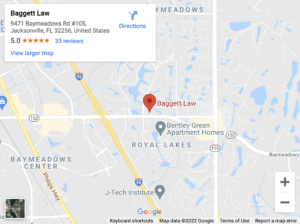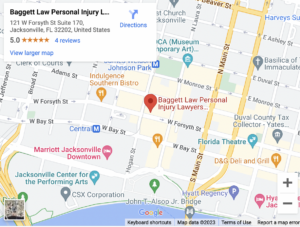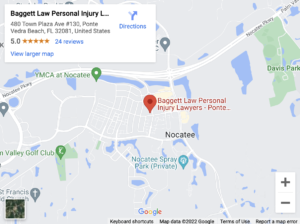
If you have suffered a serious personal injury, you might qualify for several different forms of compensation, which are referred to as damages. If you missed work or otherwise sacrificed income because of your injuries, you may qualify for “loss of earnings” and “diminished earning capacity” damages. You may qualify for other forms of compensation as well. Many factors, however, can limit the amount you receive.
Lost Earnings
“Lost earnings,” sometimes called “lost wages,” is a sum that combines compensation for the following types of losses:
- Your hourly wages or monthly salary;
- Your average tips;
- Sales commission;
- Overtime and bonus pay;
- Depleted sick leave and personal leave;
- Other work-related benefits.
You can receive full compensation for days when you missed work, even if it was considered “vacation leave” or something to that effect. The reason for this is that your leave time is a personal resource. If you deplete it because of your accident, it might not be available the next time you need it.
Proving Lost Earnings
You will need to document and prove your lost earnings. If you are an employee, the best way to do this is to have your employer sign a letter detailing exactly how much you lost and why. Another alternative is to have a representative of your employer testify on your behalf in court or at a deposition.
Things might get more complicated if you are self-employed and your income varies from month to month. If that is the case, you might need to document your monthly income or your average yearly income. Your business records and tax returns can come in handy here. You can also use correspondence to prove how many appointments you had to cancel due to your injury and other similar circumstances.
Diminished Earning Capacity
The difference between lost earnings and diminished earning capacity is that to calculate diminished earning capacity, you look to the future rather than to the past and present.
If you haven’t fully recovered your ability to work by the time you file your claim, you will need to include a demand for diminished earning capacity damages. It is best to avoid this kind of speculation, but you might be forced to do so if the statute of limitations deadline will have passed by the time you fully recover. Indeed, if your injuries are catastrophic, you might never fully recover your former earning capacity.
Proving Diminished Earning Capacity
To prove diminished earning capacity for a short time —say, six months-– you can use the usual methods of proving lost earnings outlined above by projecting them into the future. If your injuries are long-term or even permanent, however, you might be forced to retire early. Such catastrophic diminishment of your earning capacity will require more evidence than this.
To prove your losses, you will almost certainly need the assistance of an expert witness. In fact, you might need more than one. For instance, a physician witness can help establish the seriousness of your injuries, and a financial expert can help determine how your injuries will affect your earning capacity.
The professionalization of the expert witness industry
Many experts have retired from their respective fields and now testify full-time. There are even expert witness agencies that can introduce you to one. If you hire a lawyer, they can probably direct you to a top-tier expert witness of whatever type you need.
Professional expert witnesses are often quite effective; they have experience testifying and can withstand the pressure that a hostile attorney can subject them to on the witness stand.
Limitations on the Amount of Your Recovery
There could be any number of factors that might limit the amount of money you recover for lost earnings or diminished earning capacity. In fact, any factor that limits the total amount of compensation you receive will also limit the amount you receive for lost earnings/diminished earning capacity.
The most common limitations are insurance policy limitations, workers’ compensation benefits, and comparative fault.
Limitation #1:Insurance Policy Limitations
No matter how great the amount of your lost earnings or diminished earning capacity, no insurance company will pay you a dime more than their policy limits. If you are injured in a Florida car accident, for example, you must seek compensation from your own Personal Injury Protection (PIP) insurance unless your injuries qualify as “serious’ ‘ under Florida law. If you purchase the minimum PIP policy required by law, your policy limit will be only $10,000.
Insurance limitations also apply to other forms of personal injury. For example, you might rely on a dog owner’s homeowner’s insurance to cover a dog attack.
Limitation #2: Workers’ Compensation Benefits
The workers’ compensation system covers you for work-related injuries. Unfortunately, it only covers you for two-thirds of your pre-injury income. There is also a maximum equal to 100 percent of the statewide average weekly wage.
If you are a high-income earner, workers’ compensation will not even begin to cover your losses. Under most circumstances of a work-related injury, however, you will not have any choice about accepting workers’ compensation limits.
Limitation #3: Comparative Fault
If the accident that injured you was partly your fault, you could lose part or all of your total recovery. If the accident was over 50% your fault, you will receive no compensation under state law. If you were 50% or less at fault, you will lose that exact percentage of your losses. If you were 15% at fault, for instance, you will lose 15% of your total recovery.
Note that comparative fault does not apply to most workers’ compensation claims nor to claims against your PIP insurance policy.
A Jacksonville Personal Injury Lawyer Can Help You Prove Your Losses
An experienced personal injury lawyer should know the Florida Evidence Code by heart. They can use it to gather evidence that will be admissible in a Florida court. Hiring a good Jacksonville personal injury lawyer will probably dramatically improve your odds of winning a generous settlement or court judgment. Contact us today at (904) 396-1100, Bagget Law Personal Injury Lawyers can help you.




